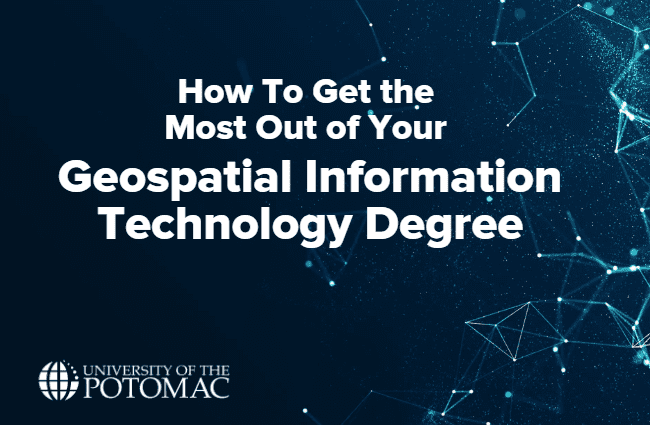These last few decades, we’ve been introduced to literacy concepts such as computer literacy, media literacy, information literacy, and digital literacy. Although these concepts overlap, digital literacy takes elements from each and sums them into a broad concept.
Because of the overflowing abundance of media and information in the digital world, digital literacy has become more than necessary. It ensures users protect their privacy, critically analyze digital data and information, ethically use digital platforms, and communicate with others eloquently.
So, what is digital literacy, why is it important, and what skills do you need to boost your digital literacy? Read on to find out!
Key Takeaways
- Digital literacy includes the ability to find, evaluate, create, and communicate information using digital technologies.
- Skills such as researching, creating content, collaborating on digital platforms, and adapting to technological changes are essential for navigating the digital world.
- Four main principles guide digital literacy: comprehension (understanding digital content), interdependence (recognizing how various media forms are connected), social factors (such as age, education, and income that influence content perception), and curation (organizing and saving digital content according to preferences).
- To develop digital literacy skills, experiment with digital tools, stay updated on technological advancements, focus on relevant platforms, and engage in lifelong learning through courses.
What Is Digital Literacy?

To fully understand “what is digital literacy,” think about how much you rely on technology in your daily life. Around 5.56 billion people around the world use the Internet in 2025. So, whether it’s managing your finances, connecting with friends, or simply consuming news, digital tools are an integral part of modern living.
The digital literacy meaning goes beyond the basic use of technology; it’s the ability to effectively use digital tools and platforms to find, evaluate, create, and communicate information. According to the American Library Association (ALA), a digitally literate person is someone who possesses both technical and cognitive skills to process information in various formats, utilizes different technologies effectively, and engages in digital spaces to collaborate with others and contribute positively to society.
At its core, digital literacy enables you to curate and consume information responsibly. It empowers you to seek credible and reliable sources, create meaningful content, and foster communities by connecting like-minded people on various platforms. In essence, it’s about knowing how to navigate the digital world with purpose and confidence.
What Are the Principles of Digital Literacy?
Digital literacy learning and development is based on four main principles, such as:
- Comprehension: This principle applies to the ability to understand digital content.
- Interdependence: A key component of developing digital literacy is understanding how all media forms are interconnected and how users can consume content more easily.
- Social Factors: Age, education, gender, income, and household type help understand how particular media is perceived or what content is more successful. So, it’s no wonder these factors play a huge role in creating an organic ecosystem of creating, sharing, and storing media or content and long-term success.
- Curation: This principle allows users to find, organize and save digital content to their preferences.
Key Digital Literacy Skills

Here are fundamental skills that a digitally literate person should possess:
- Information literacy: The ability to locate, evaluate, and effectively use information from digital sources. This skill is crucial for distinguishing credible information from misinformation.
- Technical skills: The knowledge of software, hardware, and digital tools needed to perform various tasks. They are fundamental for efficiently using devices and applications in both personal and professional settings.
- Digital communication: Effectively using online platforms to exchange ideas, collaborate, and express oneself. Strong communication skills in the digital realm are vital for both personal relationships and workplace productivity.
- Cybersecurity awareness: Understanding of risks like hacking and data breaches, and how to protect personal and professional information. Cybersecurity skills are crucial to safeguard privacy and ensure safe online interactions.
- Critical thinking: Analyzing digital content, questioning assumptions, and making informed decisions, which is increasingly important in a world with abundant digital information.
- AI and automation literacy: Understanding the basics of artificial intelligence and automation technologies, which are reshaping industries and daily life. These skills empower individuals to adapt to new technological advancements and ensure they can effectively participate in a rapidly evolving digital landscape.
How to Develop Digital Literacy Skills

Developing your abilities to learn, share, and organize media using digital technology opens a whole new world for you. Some handy tips that’ll help you develop and boost digital literacy skills are:
Interested in pursuing a degree?
Fill out the form and get all admission information you need regarding your chosen program.
This will only take a moment.
Message Received!
Thank you for reaching out to us. We will review your message and get right back to you within 24 hours.
If there is an urgent matter and you need to speak to someone immediately you can call at the following phone number:
- We value your privacy.
- Try experimenting with digital tools;
- Keep up-to-date with new technological advancements;
- Focus on the technologies and digital platforms that benefit you most;
- Adopt the mindset of life-long learning,
- Take online courses about different digital technologies and how to use them;
- Ask for help when using new technologies.
When developing digital literacy skills, it’s important to focus on some competency areas:
- General knowledge;
- Legal practices;
- Seamless integration;
- Knowledge of appropriate digital technologies;
- Privacy;
- Processing information;
- Balanced attitude, etc.
FREE RESOURCE

Download Our Free eBook: How To Get the Most Out of Your Geospatial Information Technology Degree
Uncover the insight you need to maximize your career potential.
The Bottom Line
Digital literacy has become crucial in functioning critically and effectively in the digital world, and it’s more important than ever to prioritize teaching and learning digital skills for all ages. Mastering these lifelong skills will enable you to navigate digital platforms responsibly, apply expertise across various media and applications, and manage your digital footprint effectively.
At the core of this evolution are fields like Information Technology and Computer Science, where digital literacy is foundational. Pursuing a Bachelor’s in Information Technology or Computer Science program at the University of the Potomac can deepen your understanding of digital systems and sharpen your technical skills, preparing you to significantly impact the digital world. Our degrees not only enhance your individual growth but also contribute to society’s economic and technological advancements.
Join us today and take the first step toward becoming a leader in digital literacy and technology. Your future in the digital age starts here!
Frequently Asked Questions
How is digital literacy different from computer literacy?
Digital literacy involves using technology and digital tools to find, evaluate, and communicate information, while computer literacy focuses on basic knowledge of using computers and software.
What are some careers that require strong digital literacy skills?
Careers requiring strong digital literacy skills include digital marketing, data analysis, web development, graphic design, content creation, and cybersecurity.










